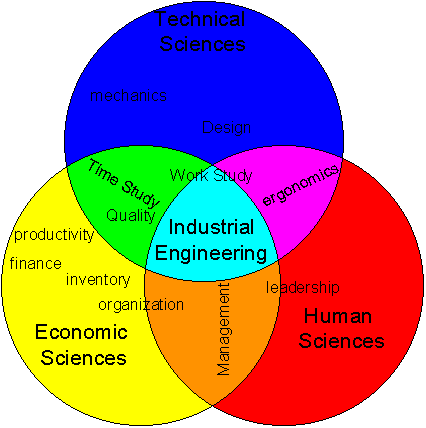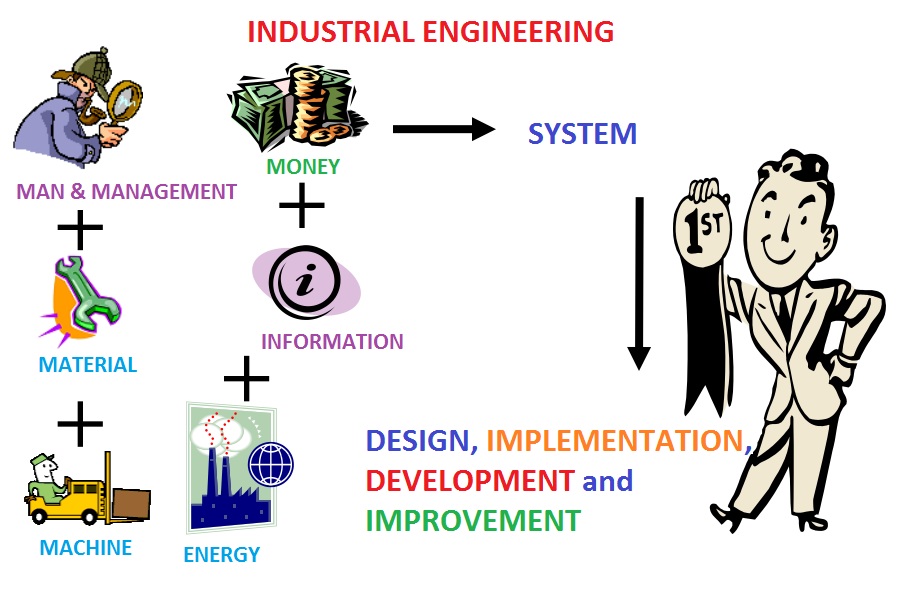What is IE ?
What is Industrial Engineering?
Industrial Engineering integrates knowledge and skills from several fields of science: From the Technical Sciences, Economic Sciences as well as Human Science - all these can also be supported with skills in Information Sciences.
The Industrial Engineer comprehends knowledge in those sciences in order to increase the productivity of processes, achieve quality products and assures Labour safety.

Industrial engineering is a branch of engineering dealing with the optimization of complex processes or systems. It is concerned with the development, improvement, implementation and evaluation of integrated systems of people,money, knowledge, information, equipment, energy, materials, analysis and synthesis, as well as the mathematical, physical and social sciences together with the principles and methods of engineering design to specify, predict, and evaluate the results to be obtained from such systems or processes. Its underlying concepts overlap considerably with certain business-oriented disciplines such as operations management, but the engineering side tends to emphasize extensive mathematical proficiency and usage of quantitative methods.

Depending on the subspecialties involved, industrial engineering may also be known as, or overlap with, operations management, management science, operations research, systems engineering, manufacturing engineering,ergonomics or human factors engineering, safety engineering, or others, depending on the viewpoint or motives of the user. For example, in health care, the engineers known as health management engineers or health systems engineers are, in essence, industrial engineers by another name.
Undergraduate curriculum
In the United States, the usual undergraduate degree earned is the Bachelor of Science or B.S. in Industrial Engineering (BSIE). Like most undergraduate engineering programs, the typical curriculum includes a broad math and science foundation spanning chemistry, physics, engineering design, calculus, differential equations, statistics, materials science, engineering mechanics, computer science, circuits and electronics, and often additional specialized courses in areas such as management, systems theory, ergonomics/safety, stochastics, advanced mathematics and computation, politics and economics. Some Universities require International credits to complete the BS degree.
Postgraduate curriculum
The usual postgraduate degree earned is the Master of Science in Industrial Engineering, Production Engineering, Industrial Engineering & Management, Manufacturing Engineering & Management or Industrial Engineering & Operations Research. The typical MS curriculum includes:
|
|